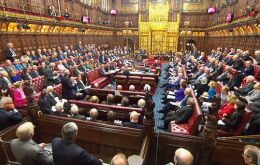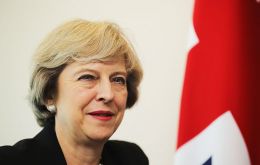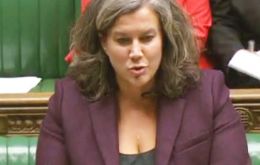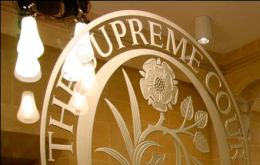MercoPress. South Atlantic News Agency
Tag: EU's Article 50
-
Thursday, March 2nd 2017 - 06:32 UTC
PM May Brexit bill defeated in Lords, but implementation of Article 50 stands, says government

Britain's House of Lords dealt a defeat to Theresa May's government on Wednesday, voting for a change to her Brexit plan that says she can only trigger divorce talks if she promises to protect EU citizens' rights.
-
Wednesday, February 8th 2017 - 10:28 UTC
British government manages to avoid conditions to the Brexit bill

The British government has seen off an attempt to add conditions to its Brexit bill as a Conservative rebellion was avoided. MPs rejected a bid by Labour's Chris Leslie to force the government to consult Parliament on the deal struck with the EU before it is finalized. It came after ministers pledged that a “meaningful” vote would be offered.
-
Wednesday, February 1st 2017 - 08:47 UTC
Parliament expected to support bill to open way for Brexit negotiations

British Members of Parliament are to vote later whether to give Theresa May the power to get Brexit negotiations under way. The government is expected to win, with most Conservative and Labour MPs set to back its European Union Bill.
-
Tuesday, January 31st 2017 - 10:52 UTC
Labour divided on support for PM's May EU single market exit

A group of backbench Labour MPs have put forward a Commons motion to stop the Article 50 bill. Proposed by former shadow Health Secretary, Heidi Alexander and supported by 18 MPs, it argues they can't support the Prime Minister’s plan to take Britain out of the EU's Single Market.
-
Thursday, January 26th 2017 - 20:39 UTC
UK publishes draft legislation to trigger Brexit: parliament debate begins next week

The British government published on Thursday draft legislation that will allow the UK to start the process of leaving the EU. The European Union (Notification of Withdrawal) Bill has been produced after the Supreme Court ruled legislation would be necessary.
-
Wednesday, January 25th 2017 - 08:09 UTC
Government cannot trigger Article 50 without an act of Parliament, rules the Supreme Court

The UK Parliament must vote on whether the government can start the Brexit process, the Supreme Court has ruled. The judgment means Prime Minister Theresa May cannot begin talks with the EU until MPs and peers give their backing - although this is expected to happen in time for the government's 31 March deadline.
-
Tuesday, January 24th 2017 - 18:46 UTC
UK Supreme Court scheduled to make landmark ruling on Brexit

The United Kingdom Supreme Court will rule whether Parliament or ministers have the power to begin the Brexit process. The landmark judgment, to be announced early Wednesday will decide how the EU's Article 50 exit clause is triggered.
